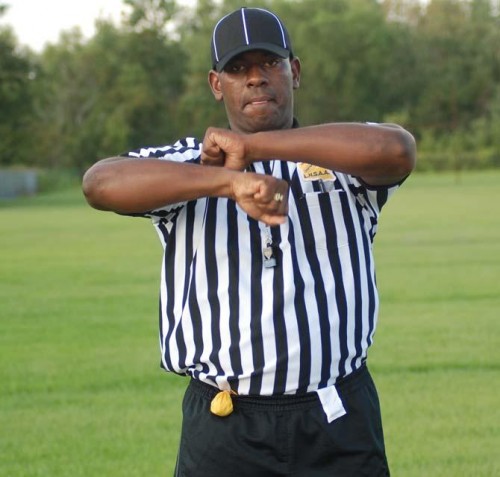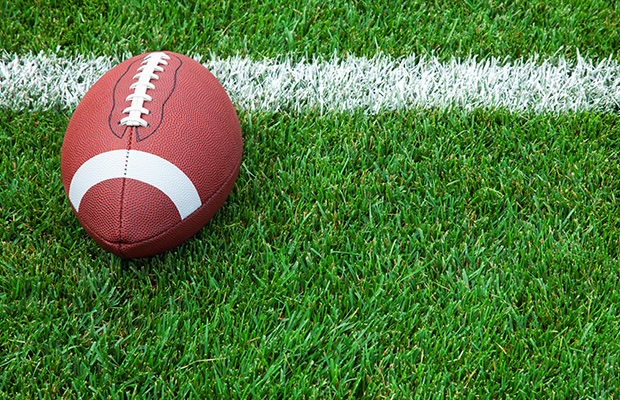Hilda Voisin Buquet
August 25, 2009
Mary Little McFarland
August 27, 2009Ever gone to a football game and watched an official use all kinds of bizarre hand motions?
Ever wondered what a personal foul, pass interference or chop block was?
Well, don’t be out of the loop anymore.
SportsNet got with Houma’s Rodney Peete, who officiates high school football, for a refresher course on the different calls commonly used during games. So next time someone asks, “Why is the ref doing the shimmy?” you can tell them that’s actually the signal for illegal procedure.
So, here’s a rundown of the most common signals, why they’re called and the resulting penalty.
• Holding – an illegal action where one player keeps another from advancing by grabbing him and holding him back. Offensive holding is a 10-yard penalty and the down is repeated. Defensive holding results in a five-yard penalty and an automatic first down.
• Pass interference – illegally hindering another player’s chances of catching a forward pass. In prep and college, defensive pass interference is a 15-yard penalty. In the NFL, the offensive team is awarded the ball at the spot of the foul with an automatic first down. Offensive pass interference results in a 10-yard penalty against the offense.
• Unsportsmanlike conduct – a dead-ball foul in which a player, in the judgment of the officials, taunts or otherwise acts in an unsportsmanlike manner resulting in a 5-yard penalty.
• Intentional grounding – the quarterback, while he is still in the area between the tackles, purposely throwing the ball out of bounds or into the ground to avoid taking a sack. 10-yard penalty.
• Roughing/running into the kicker – making incidental contact with a placekicker or punter after the ball has been kicked. Roughing the kicker is a 15-yard penalty; Running into the kicker is a 5-yard penalty.
• Chop block – A block below the knees. 15-yard penalty.
• Face mask -grabbing an opponent’s face mask. Incidental grabbing is a 5-yard penalty; a major facemask foul, such as intentionally grabbing the face mask , is a 15-yard penalty and automatic first down.
• Encroachment – a foul in which a defender makes contact with a member of the offense before the snap. 5-yard penalty.
• Illegal procedure – A penalty that includes forward movement by an offensive player before the snap. 5-yard penalty and repeat of down.
• Illegal shift – a foul by the offense where a player fails to reset for at least one second after two players shift position at the same time. 5-yard penalty.
• Delay of game – a foul committed by the offense when the ball is not snapped before the play clock runs out. The play clock is set at 40 seconds between plays.
• Touchdown – the signal every team thrives to see. As a player crosses the goal line with the football, the official raises both hands in the air to signal he scored six points.
• Loss of down – on some penalties such as intentional grounding, the offense loses a down.
• Dead ball – a penalty that happens before the snap of the ball. Anything that happens after the ball is snapped is void and the down is played over after the yards are assessed.
• Personal foul – a flagrant illegal act that is generally deemed to possibly cause injury to another player. Penalties include, but are not limited to, late hits, unnecessary roughness and blows to the head. A personal foul is a 15-yard penalty against the offending team and an automatic first down.
Nope, that’s not the shimmy. Houma referee Rodney Peete is signalling illegal procedure. It usually follows forward movement by an offensive player before a snap. The result: a 5-yard penalty and repeat of the down. * Photo by KEYON K. JEFF








